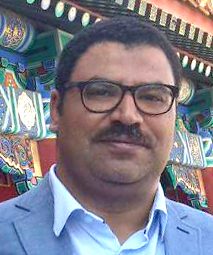Chinese President Xi Jinping is to attend the Chinese-Arab summit in Saudi Arabia early in December, according to reports. The summit is said to be a new milestone in Arab-Chinese relations.
Arab leaders and will be attending the event, which will witness the signing of several agreements between China and Arab countries. Many consider the forthcoming summit as a turning point in regional politics as it comes against the backdrop of the war in Ukraine and its impact on the rest of the world, an energy crisis and looming global recession.
The summit also comes at a sensitive time for Saudi-US relations, which have been strained by a dispute over energy supplies and concerns about the ever-growing Chinese influence in the Middle East.
Many observers expect Beijing to strengthen its energy ties with the Gulf countries during the summit.
Reports also refer to dozens of agreements and memoranda of understanding between China and Arab countries on energy, security, investment, technology, and co-operation in space exploration.
Away from the rhetoric about the conflict of interest in the region between the US and China, some Arab countries view China as a reliable partner, especially in economic and technological fields.
China has established itself as a major trading partner for every country in the region. Its state-owned enterprises do a lot of significant contracting throughout the region and it is an important source of investment.
Saudi Minister of State for Foreign Affairs Adel Al-Jubeir earlier this month said that strengthening trade ties and regional security would be priorities during the Chinese president’s visit.
The summit also comes at a time when China is already trying to bolster its relations with this region. The latest of these efforts was a landmark $60 billion agreement for purchases of liquefied natural gas from Qatar and an agreement with the United Arab Emirates to send a probe to the moon.
The summit also is expected to see Beijing bolstering ties with Saudi Arabia, China’s largest source of foreign oil. According to media reports, the two sides have allegedly entered talks to settle oil deals in yuan, a change that would undercut the dollar, which has long been the default currency for pricing energy contracts around the world.
In his message to the latest Arab League summit in Algeria, President Xi stressed that China and the Arab world have consolidated political mutual trust, achieved sustained and tangible progress in Belt and Road co-operation, and witnessed fruitful practical co-operation in various fields. He described China-Arab ties as time-tested relations that have grown from strength to strength. “China and Arab countries are future-oriented strategic partners of all-round co-operation and common development. We have offered each other consistent and firm support on issues concerning core interests and of major concerns,” he said.
Earlier this year, Arab League Secretary-General Ahmed Aboul Gheit and Zhai Jun, ambassador and special envoy of the Chinese government in the Middle East, discussed co-operation between the Arab world and China.
Aboul Gheit expressed his appreciation for China’s support for Arab countries in providing vaccines during the Covid-19 pandemic and thanked China for supporting the Arab League in international forums and in the Security Council, including on the Palestinian issue.






Discussion about this post